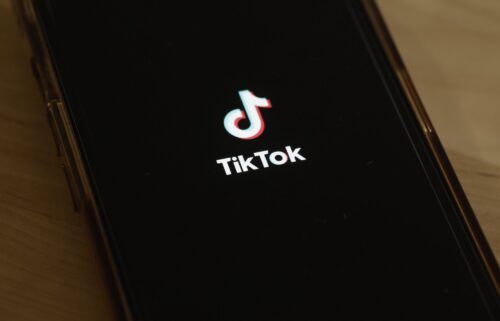The GameStop frenzy is moving fast. Catch up here
If you thought the GameStop drama was over, think again.
ICYMI: Last week, a tense showdown played out on Wall Street. It was a David vs. Goliath tale in which a band of amateur investors on Reddit took on Wall Street pros by inflating the share price of GameStop (and other securities).
The mass buying spree led to huge gains for some in the Reddit crowd who got in early. Hedge funds, meanwhile, lost billions of dollars on their short positions.
While GameStop and other Reddit faves surged, the broader stock market had its worst week since October. And traders were bracing for more volatility on Monday.
Here’s what you need to know.
Silver is the new GameStop?
GameStop, the struggling mall-based retailer, was up 600% for the week as of Friday, so anyone thinking of getting in on the rally now would be (rightly) wary of buying high only to have the stock crash. That means they’re hunting for deals elsewhere.
Enter silver.
Last week, people on WallStreetBets, the Reddit community fueling the rally, set their sights on silver and the iShares Silver Trust ETF (that’s “exchange-traded fund” — a basket of securities that trade like a stock). Some promoted it as a way to hurt big banks they believe are artificially suppressing prices.
On Monday, silver prices jumped 13% to an eight-year high.
“The #silversqueeze is a rage against the machine,” tweeted Tyler Winklevoss. (Yes, that Winklevoss.)
However, it’s not clear who the Reddit users are — nor whether their market moves match the claims online. In fact, some posts on WallStreetBets late Sunday and Monday suggested their movement is being co-opted by hedge funds and there is no coordinated effort in the silver market.
“The Silver Squeeze is a hedge-fund coordinated attack so they can keep fighting the $GME fight,” one thread was titled.
Who are the good guys and who are the bad guys?
No one knows.
Senator Elizabeth Warren, an outspoken defender of consumer rights and frequent critic of big banks and hedge funds, is calling for the Securities and Exchange Commission to investigate.
“We actually don’t know who all the players are in all this — whether there’s big money on both sides,” Warren said on CNN on Sunday. “That’s why we need an SEC investigation.”
She called Robinhood’s decision to flip the switch and prevent users from buying GameStop in the middle of a trading session “just wrong.”
What exactly happened with Robinhood?
Last week, the trading app used by millions of everyday investors temporarily blocked trades on red-hot Reddit darlings like Gamestop and about a dozen others, prompting a massive backlash.
The reason, Robinhood said, was not because it was bowing to pressure from big Wall Street firms, as many on social media accused it of doing.
The surge in trading was simply so huge that Robinhood, a seven-year-old startup, was facing a cash crunch.
Why? When you buy a stock on Robinhood, you might think that it instantly becomes yours when you tap “buy.” But behind the scenes, there’s more going on.
All trades have to go through a clearinghouse — these are obscure intermediary institutions that mitigate risk between buyers and sellers.
As the Reddit frenzy grew, it triggered the the risk-reduction mechanisms managed by clearinghouses, meaning Robinhood had to find emergency cash to be able to continue executing trades.
Robinhood’s CEO Vlad Tenev said the $3 billion ask was “an order of magnitude” larger than what Robinhood is typically required by the National Securities Clearing Corporation to put up. It had to tap its existing investors for a $1 billion cash infusion.
On Monday, Robinhood raised yet another $2.4 billion from shareholders. The $3.4 billion total is more than the company has raised in its entire existence, according to the Wall Street Journal.
The app eased some restrictions on Friday, after taking a PR beating online. On Sunday it said it would further lift restrictions on stock trades — but not entirely. For instance, Robinhood users are able to buy only one share of GameStop and 10 shares of AMC.
Who’s this Melvin I keep hearing about?
That’s Melvin Capital, a premier Wall Street hedge fund that just lost a lot of money.
Melvin was a major short-seller of GameStop, meaning it had a sizable bet that the shares would drop. So when GameStop’s stock shot up more than 1,600%, it got burned.
Melvin lost some 53% of investments in January, a person familiar with the matter told CNN Business.
The loss is so staggering, and so potentially destabilizing, that other hedge funds, led by Citadel, provided Melvin with a more-than-$2-billion bailout.

